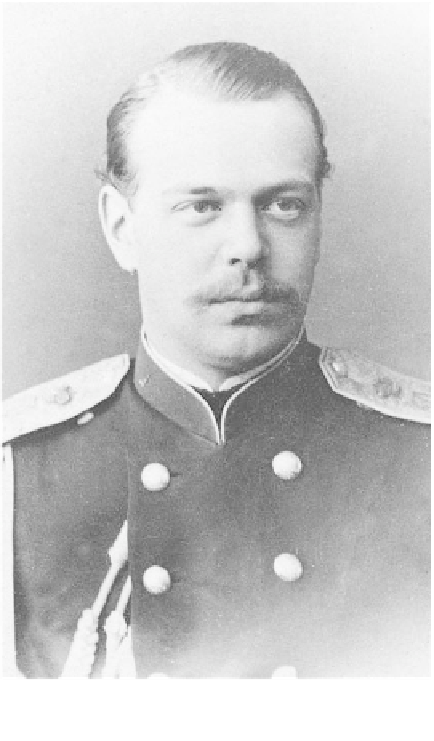Travel Reference
In-Depth Information
categories of peasants were freed in 1863 and
1866. Other important reforms provided for
institutions of local government (
ZEMSTVO
), an
elementary school system, an independent judi-
ciary, and, in 1874, an army based on universal
military service. Expectations of more far-reach-
ing reforms had run high, especially among
peasants and students, leading to disturbances
in the countryside and the formation of the first
revolutionary groups in urban centers.
After the stinging defeat in the Crimea,
Alexander's foreign policy adhered to the princi-
ple of noninterference. The one exception was
Russia's defense of Bulgarian interests in the
RUSSO
-
TURKISH WAR OF
1877-78 that resulted in
the independence of Bulgaria. At home, his gov-
ernment put down the
POLISH REBELLION OF
1863
and secured a victory in the 35-year-long war to
conquer the northern Caucasus. His reign also
witnessed the conquest of most of Central Asia,
an area that became known as Russian Turkestan.
The final years of his reign were dominated
by a concern with terrorism, as Populist revolu-
tionaries, notably the
PEOPLE
'
SWILL
, decided that
a few selective assassinations could advance
their cause. Alexander, who had already sur-
vived an assassination attempt in 1866, was con-
demned to death by the People's Will and
escaped several more attempts, including an
attack on the dining room of the Winter Palace.
Convinced that new reforms were needed,
Alexander appointed Count Loris-Melikov to
pursue a twin program of suppressing terrorism
while promoting reforms. But on March 1, 1881,
after having indicated his support for a plan to
introduce a representative assembly, he was
killed when members of the People's Will lobbed
a bomb at his carriage.
Alexander III
(Library of Congress)
narrow-minded man, Alexander was given a
broader education once he became heir but
remained profoundly influenced by his tutor
Konstantin
POBEDONOSTSEV
, a reactionary jurist
who would later become procurator of the Holy
Synod. Thrust on the throne by his father's
assassination, he pursued politically reactionary
policies designed to end the threats of terrorism
and revolution. Convinced of the need to dis-
mantle his father's reformist legacy, Alexander
III began his reign by issuing the Temporary Reg-
ulations that gave officials the power to search,
prosecute, and exile anyone deemed to be a
threat to state security. He also pursued a policy
Alexander III
(1845-1894)
(Aleksandr Aleksandrovich)
emperor
Second son of
ALEXANDER II
, Alexander became
the heir to the throne after the death in 1865 of
his older brother, Nikolai. A strong, honest, but

Search WWH ::

Custom Search